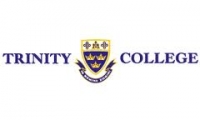






The study of economics does not seem to require any specialized gifts of an unusually high order. Is it not, intellectually regarded, a very easy subject compared with the higher branches of philosophy or pure science? An easy subject at which few excel! The paradox finds its explanation, perhaps, in that the master-economist must possess a rare combination of gifts. He must be mathematician, historian, statesman, philosopher—in some degree. He must understand symbols and speak in words. He must contemplate the particular in terms of the general and touch abstract and concrete in the same flight of thought. He must study the present in the light of the past for the purposes of the future. No part of man’s nature or his institutions must lie entirely outside his regard. He must be purposeful and disinterested in a simultaneous mood; as aloof and incorruptible as an artist, yet sometimes as near to earth as a politician.” J. M. Keynes “Alfred Marshall, 1842-1924” The Economic Journal, (Sept.,1924) To enter into the study of economics is to enter a particular way of thinking about the world. The central feature of economic reasoning is the relationship between individual action and the (often) unintended social and economic outcomes that result. Economic inquiry attempts to understand the mechanisms of interaction and associated outcomes whether individuals are acting individually or in concert through markets and other institutional structures. The world of economics thus encompasses fundamental institutions and activities that govern “economic” outcomes—prices of goods, the amount of private and public investment, the wealth or poverty of nations and persons, unemployment rates, the structure of organizations, the benefits and burdens of globalization and trade, the quality of the environment and health care, etc. We use this way of thinking to understand how different institutions promote or retard growth, the effects of differing monetary and fiscal policies, markets for health, labor, environmental goods, investments and invention, financial assets, trade; yes, even sports and art.
| Number | Duration |
|---|---|
| 4 | year |
career-related jobs